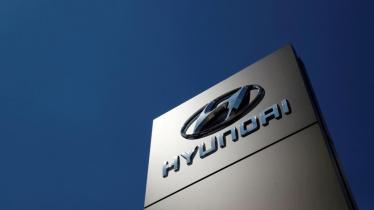By Henny Sender
At some point in the coming months, Korean carmaker Hyundai will list its Indian operations in Mumbai, raising up to $4 billion in what is likely to be among the biggest initial public offers ever in the local stock market.
Since its entrance into the now highly competitive auto market about 25 years ago, Hyundai has swiftly gone from nothing to challenging still-dominant Maruti Suzuki. Prior to the arrival of its Korean rival, that firm had an almost monopolistic position in the country. Today, Hyundai has the second-largest market share in India, and could be worth as much as $40 billion.
Much of the credit for that achievement can be explained by Hyundai’s willingness to employ local talent to build its local business in contrast to the Japanese. “Koreans are a more flexible version of the Japanese,” says Rahul Chadha, founder of Shikhara Investment Management and former CIO of Mirae Asset Management. “Because the Japanese carmakers think they are the best, they are very rigid.”
Hyundai began by recruiting Indians for marketing from local players such as Tata, and then promoting them to the top leadership positions, recognising how different India is to its home market. And that is true for its Kia unit as well, which has piggybacked on Hyundai for its own success in the Indian market.
“The Koreans always take the back seat and delegate more to the Indians,” notes the auto analyst for one international firm based in Mumbai. “Every senior position is up for grabs. That makes them more nimble.”
To be sure, it helped that Hyundai timed its entrance into India perfectly. It came at a moment when a critical mass of Indian consumers began to aspire to own more than just a basic car.
“We came just as the market was ready to move up from two wheelers to four wheelers,” said one executive who had been lured away from Tata Motors soon after the Korean carmaker arrived in the country. “We pitched Hyundai cars as the dowry gift of choice. It was very effective.”
Hyundai is not an outlier, but rather is typical of Korean firms as they venture abroad. They believe that they are more likely to succeed by relying on locals than on expats from back home. That philosophy contrasts with Japanese companies that generally rely on executives from Japan to build businesses in the rest of Asia, despite the lack of knowledge of local market conditions.
“Maruti Suzuki is heavily controlled by the Japanese,” says a second analyst at another of the big international banks in Mumbai. “It is frustrating. When a Japanese firm takes over a local company, suddenly everyone has to address each other as ‘san’”—the Japanese honorific.
Moreover, the Indian market is nothing like either the Korean market or the Japanese market where consumers want perfect, rather than just good enough. “India behaves like a developed market in some respects,” says the first analyst. “They rely on financing for their purchases. And they are more value-conscious than price-conscious. Hyundai has the best features and the best value in the market.”
Indeed, cars for Indians—as for Chinese and Americans—are aspirational. Features such as a sun roof, automatic transmissions and windows or large infotainment screens cater to the sense that a Hyundai is a premium product, in contrast to its big rival. Thirty years ago, this analyst’s parents in Calcutta (now Kolkata) bought an Ambassador. The next car they bought was a Maruti Suzuki. Now both the parents and their two sons all drive Hyundai cars.
It helps that Korea can’t just rely on its home market and has always had to look outside for scale. And the fact that many of the big Korean firms are family-owned means that they are less bureaucratic than the Japanese—a weakness that Japanese themselves often mention.
Might the Korean success be challenged going forward from the Chinese and the possible entrance of Tesla which so far has unsuccessfully sought subsidies from Delhi to set up operations in India?
Today, BYD (the acronym stands for “Build your Dream”) operates in the country by importing knockdown kits, which have heavy duties on them but failed to get concessions from Delhi. Great Wall tried to buy a shuttered GM plant in Maharashtra but gave up—and that plant went to Hyundai instead, according to one analyst. SAIC owns MG but never advertises that fact. Indeed, JSW has a significant minority stake in the local MG operation and is expected to increase that stake over time. Yet, most analysts believe that the Chinese cannot succeed in India, given the hostility of the BJP government to its big neighbour to the North.
Prospects for Tesla are unclear in a market where less than 3% of the cars on the potholed roads of India are electric, while Tesla’s price points are far higher than those local consumers likely can afford to pay.
Meanwhile, the planned Hyundai listing in Mumbai is partly a simple arbitrage when contrasted with the discount at which the Korean market trades, given its perceived lack of corporate governance and transparency. The carmaker’s IPO may also trigger a trend whereby other multinationals list their local operations.
But few will have as dramatic a bull case as Hyundai in India.
(The author, Henny Sender, is Founder & MD, Apsara Advisory, and a former MD of Blackrock. Views expressed are the author’s own)
